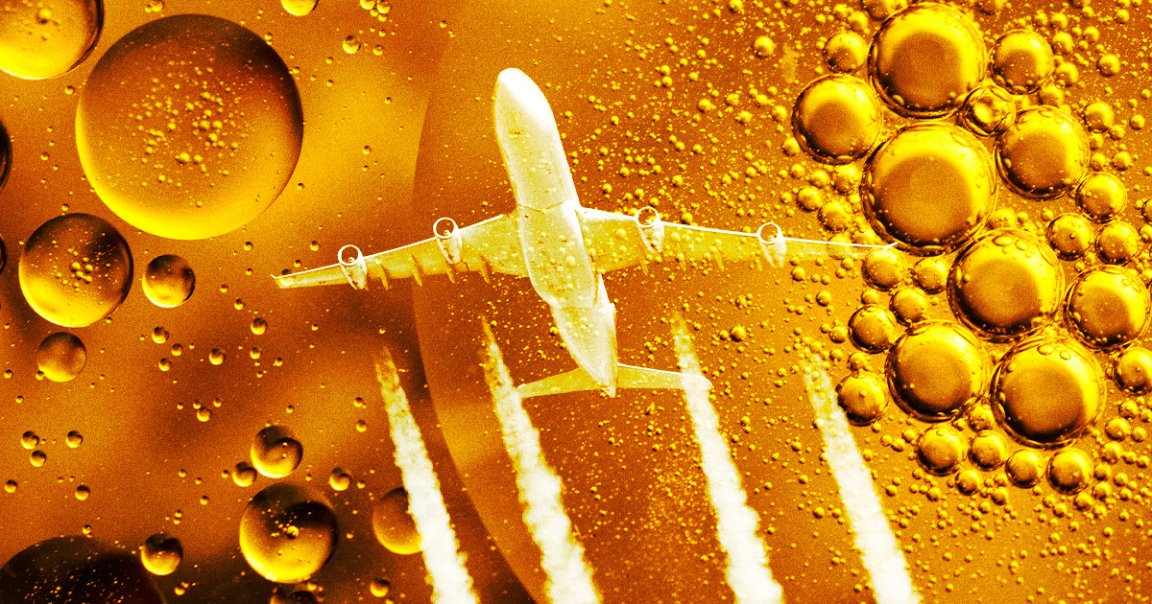
Top Gun
The first-ever transatlantic commercial flight running on 100 percent used cooking oil and other plant-based materials went off without a hiccup on Tuesday, according to USA Today — but sadly, it flew under the moniker Flight100 and not the more fitting French Fry Express.
No matter — Virgin Atlantic’s Boeing 787 flew not just from London to New York but also into the history books with its use of sustainable aviation fuel (SAF) in a demonstration that shows it’s possible, at least in principle, that aviation could one day be a carbon-neutral industry.
Currently, rules limit the use of SAF to 50 percent on commercial flights. To make Tuesday’s journey happen, Virgin Atlantic needed approval from American and British regulators plus months of testing and checking for any safety concerns.
“This flight is super important because it’s showing us that we can go all the way,” said sustainable aviation expert Alastair Blanshard to USA Today.
Carbon Crunch
Making flying carbon neutral is crucial because while aviation makes up just 2 percent of global carbon emissions, the industry is growing more compared to other transportation modes and the prospect of making the sector better for the environment is challenging.
SAF looks promising to aviation experts, but the production of these fuels is nowhere near the scale that aviation needs in order to be carbon zero, according to experts interviewed by USA Today. And the clock is ticking as global warming increases and coming regulations are coming to the fore. For example, the United Kingdom is planning regulation that mandates airlines fly with 10 percent SAF by 2030.
“Right now, SAF production is really scarce,” said the Virgin Atlantic chief customer and operating officer Corneel Koster to the news outlet. “It needs to scale up about 150 times, is what we calculated, to be able to hit the 10 percent mandate by 2030.”
More on airplanes: Pilots Testing Electric Airplane Say It’s Weirdly Quiet